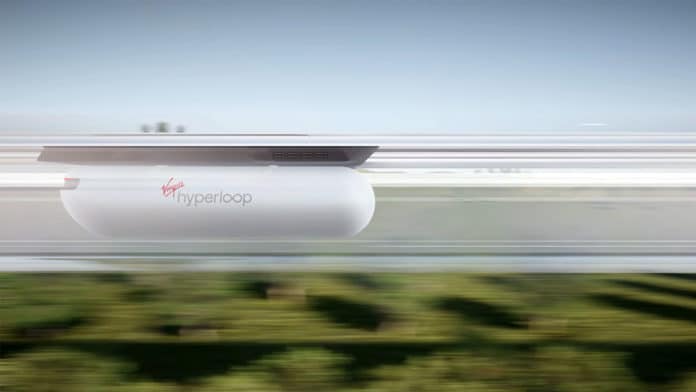Richard Branson’s Virgin Hyperloop made worldwide headlines in November 2020 when it conducted the first passenger test on its hyperloop system. The company has now released a video explaining its transportation concept, which includes more design upgrades compared to the company’s last announcement.
The hyperloop system uses sealed tubes with low pressures to allow travel Pods to move at high speeds in an environment that offers little air resistance. Aimed at connecting large cities in minutes, a Hyperloop is more energy efficient compared to train systems and an eco-friendly option.
The video shows that Virgin Hyperloop’s Pods aren’t resting on the tracks – like the magnetically levitated (MagLev) train system – rather hanging off them. It starts with a near-vacuum environment inside a tube, which enables high speeds and low power consumption by nearly eliminating aerodynamic drag.
Instead of physically connecting the Pods like a train, Virgin Hyperloop plans to move them in a convey one after another, so they can be diverted to different destinations. Just like a car taking an off-ramp, Pods can split off while the rest of the convoy continues on.
The company also claims that its battery-powered Pods carry intercity passengers at speeds up to 670 mph (1080 km/h) comfortably, safely, and quietly, using its proprietary electric propulsion and electromagnetic levitation under near-vacuum conditions. The engines contain arrays of electromagnets, which lift and guide the Pod within the track.
According to Virgin Hyperloop, its magnetic levitation and propulsion system is ten times more energy-efficient than the world’s fastest maglev trains currently in use. It also claims that its Pods will enable ultra-fast transportation for tens of thousands of people per hour at airplane speeds, with zero direct emissions.
Virgin Hyperloop aims to achieve safety certification by 2025, with commercial operations beginning in 2027.
